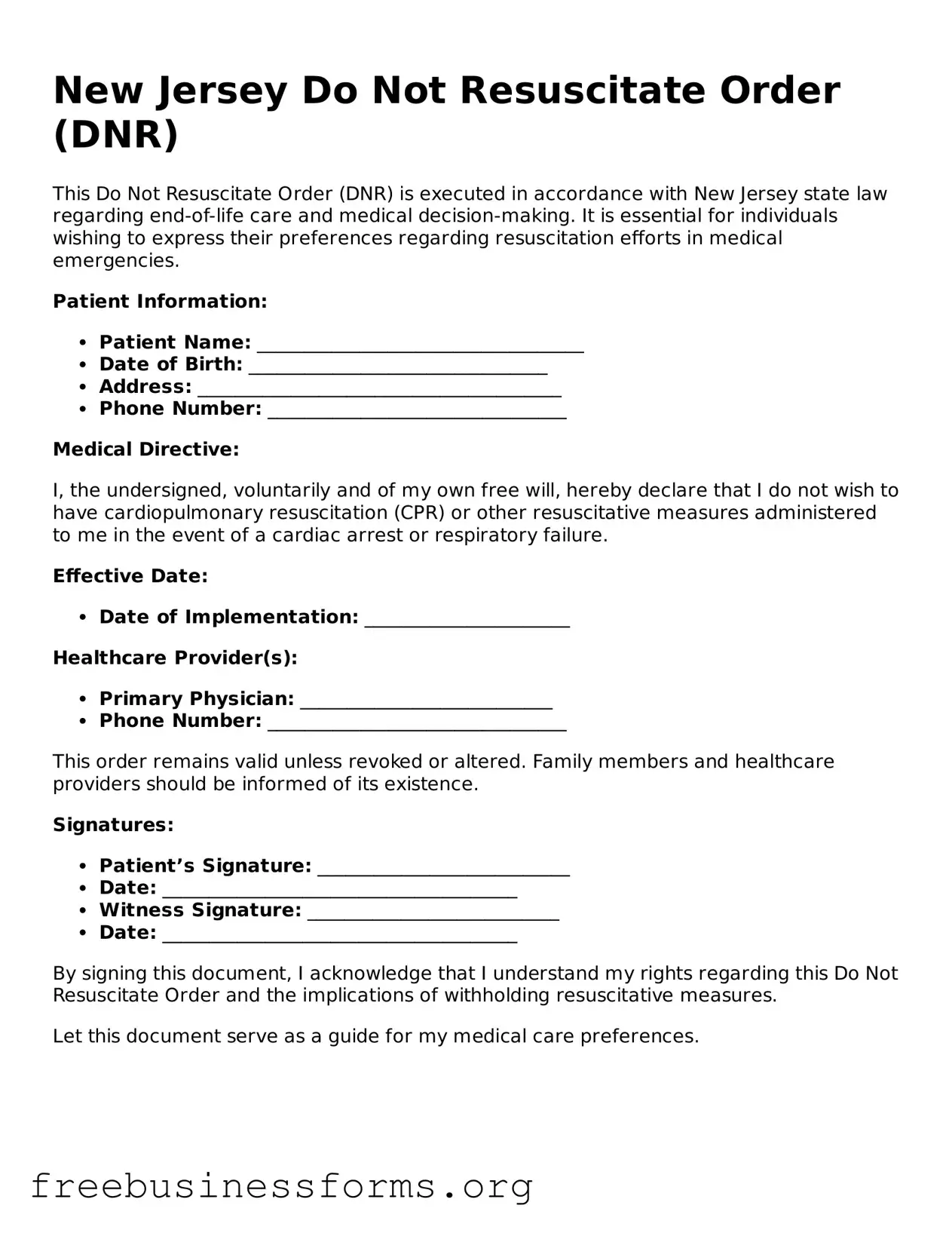Blank Do Not Resuscitate Order Template for New Jersey
A New Jersey Do Not Resuscitate (DNR) Order form is a legal document that allows individuals to express their wishes regarding resuscitation efforts in the event of a medical emergency. This form ensures that patients who do not wish to receive life-saving measures, such as CPR, can have their preferences respected by healthcare providers. Understanding the implications of a DNR order is crucial for individuals and their families when making informed healthcare decisions.
Open Form Here

Blank Do Not Resuscitate Order Template for New Jersey
Open Form Here

Open Form Here
or
↓ PDF File
Quickly complete this form online
Complete your Do Not Resuscitate Order online quickly — edit, save, download.